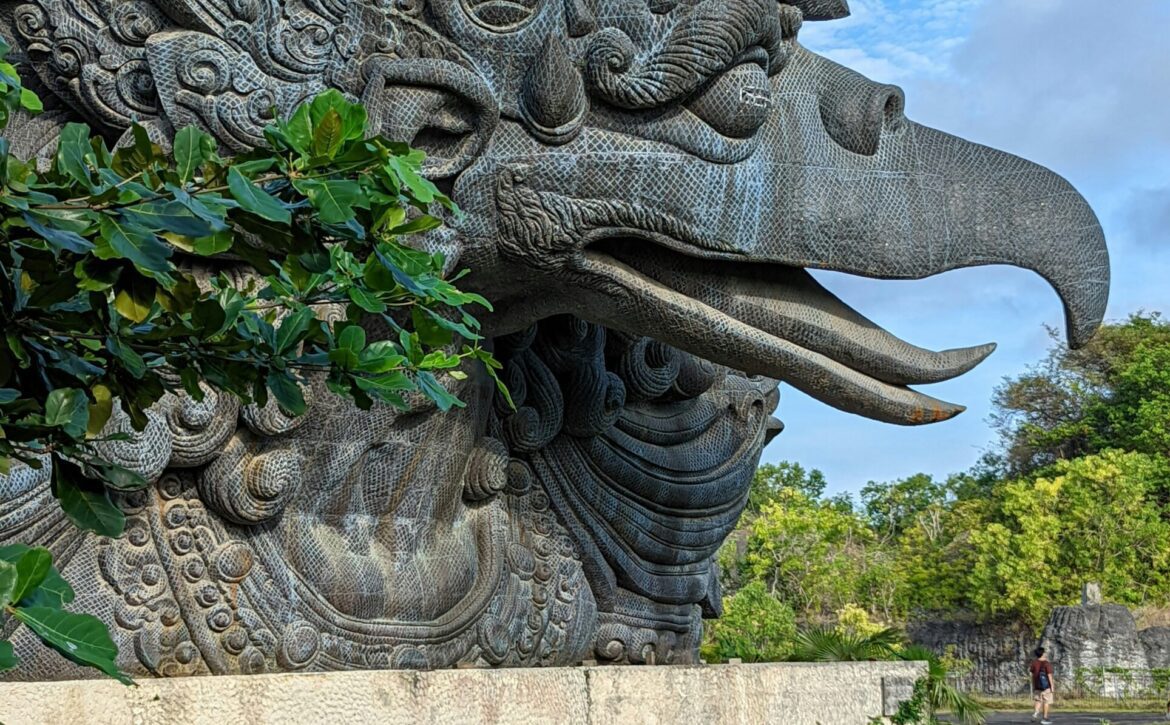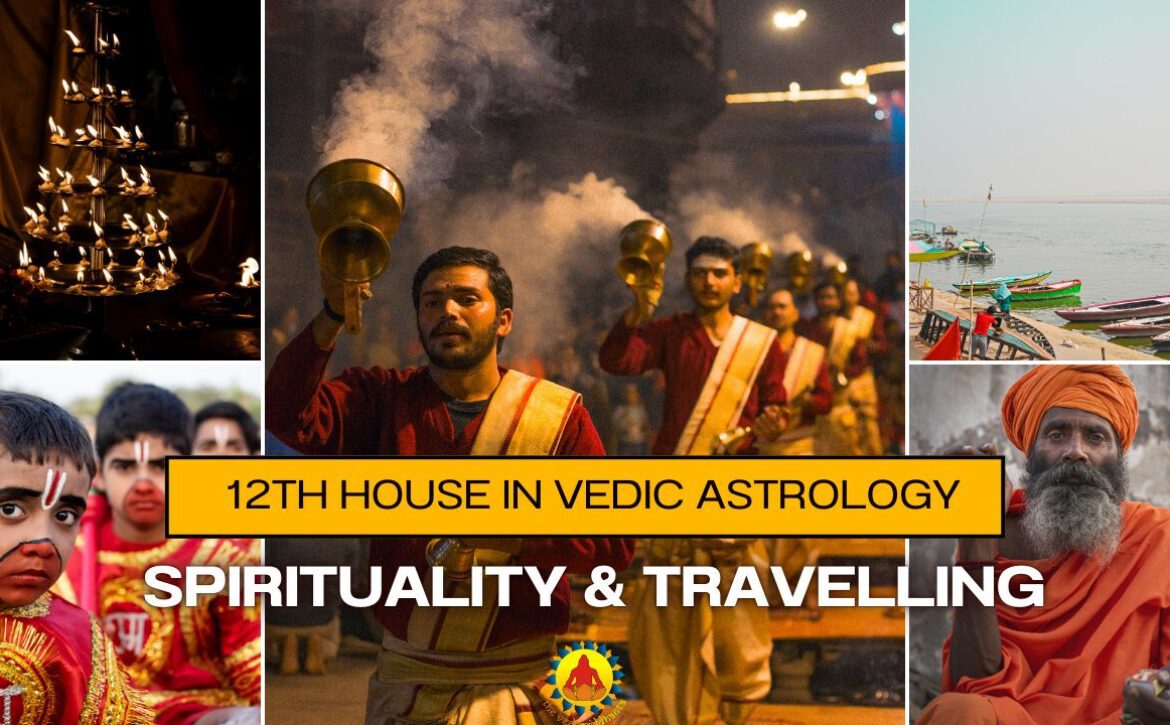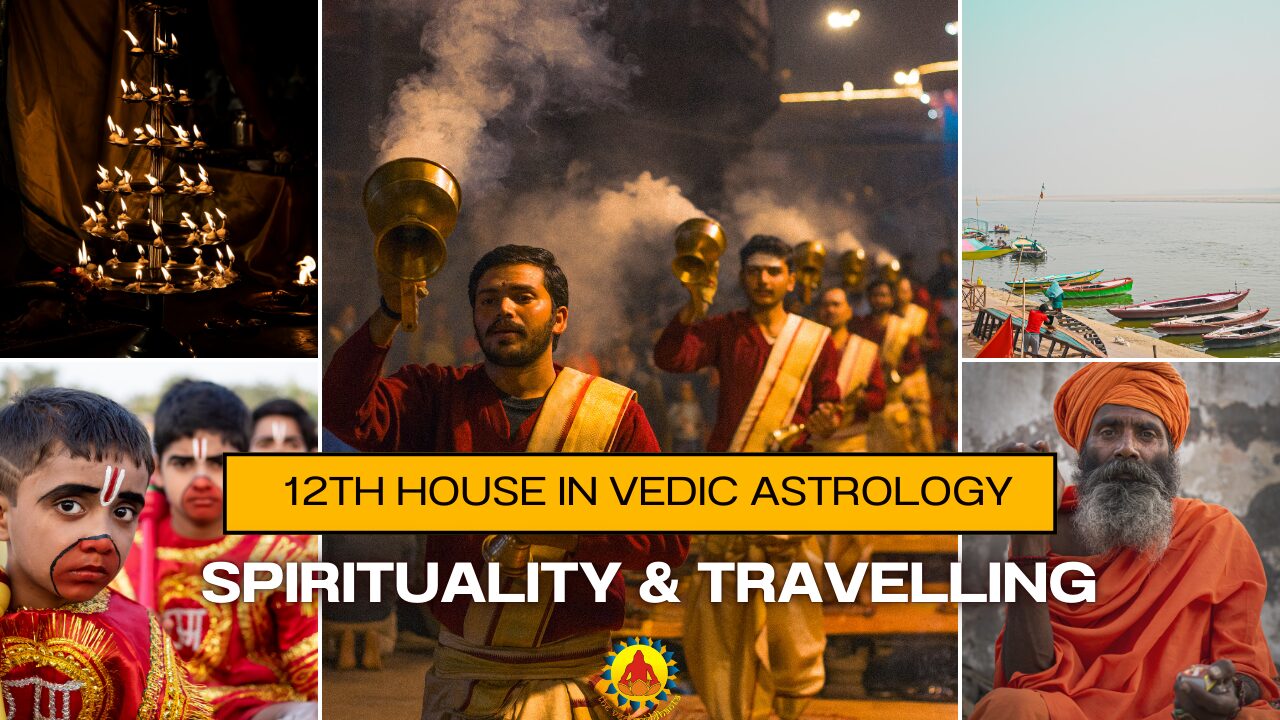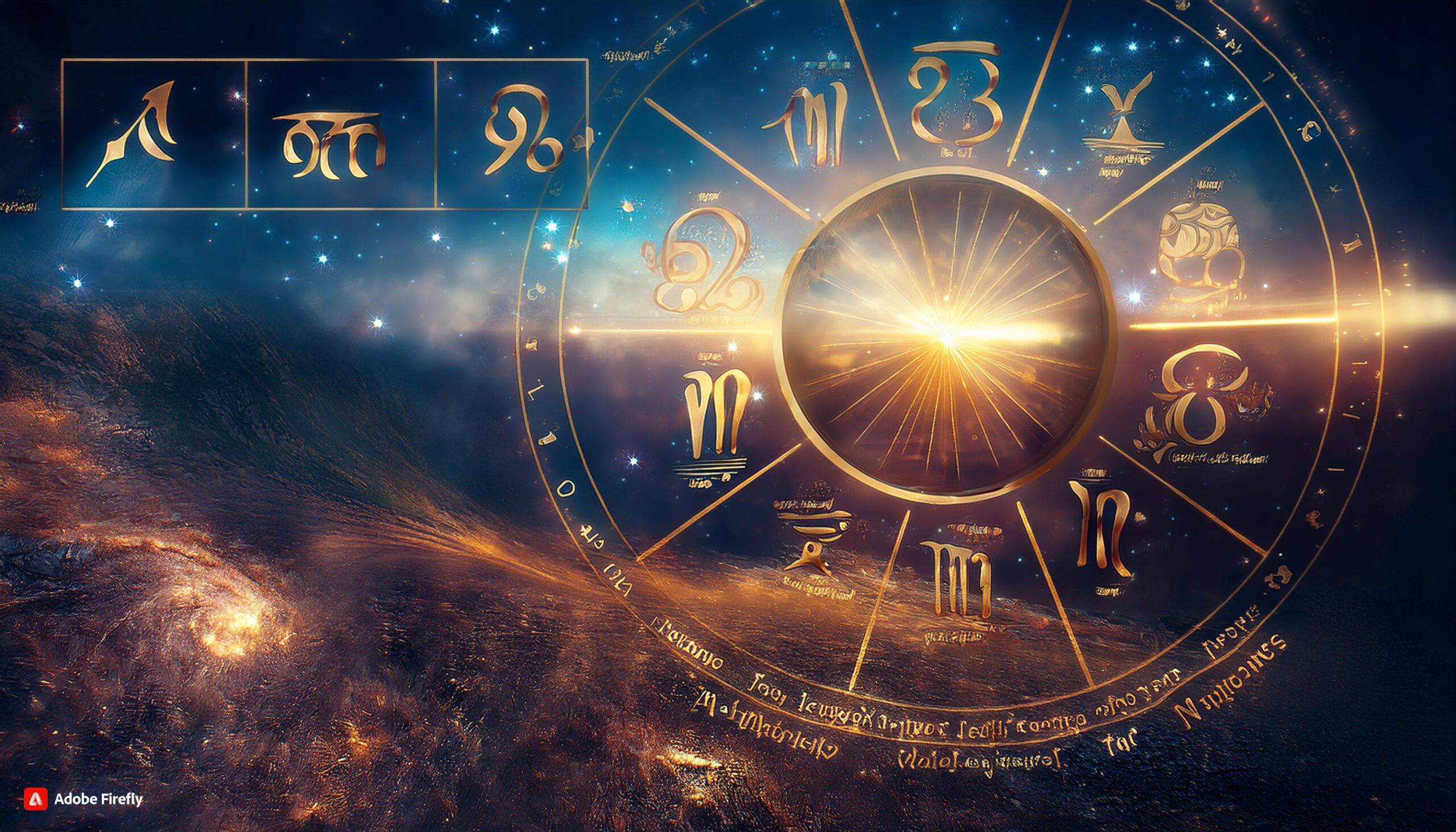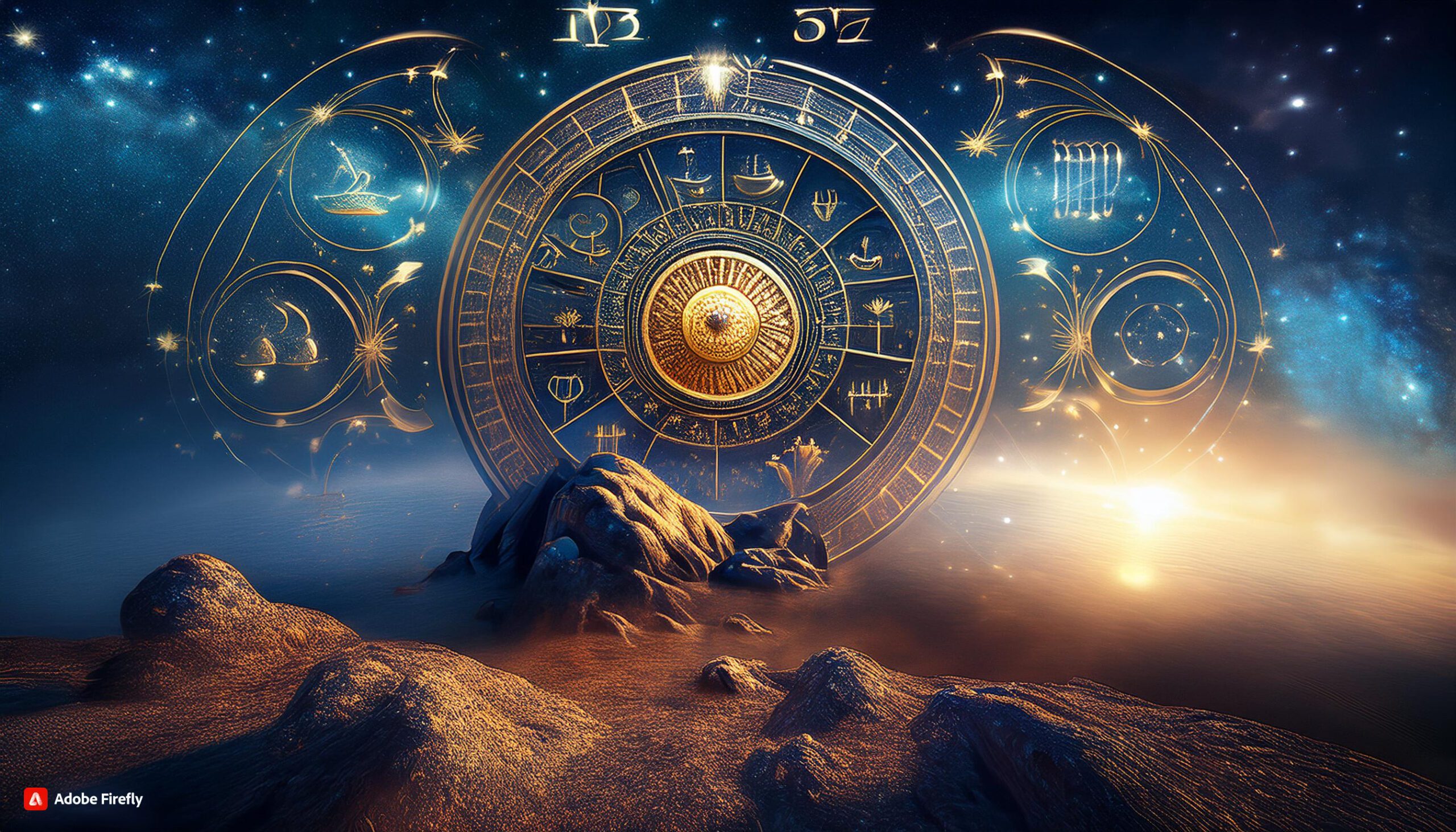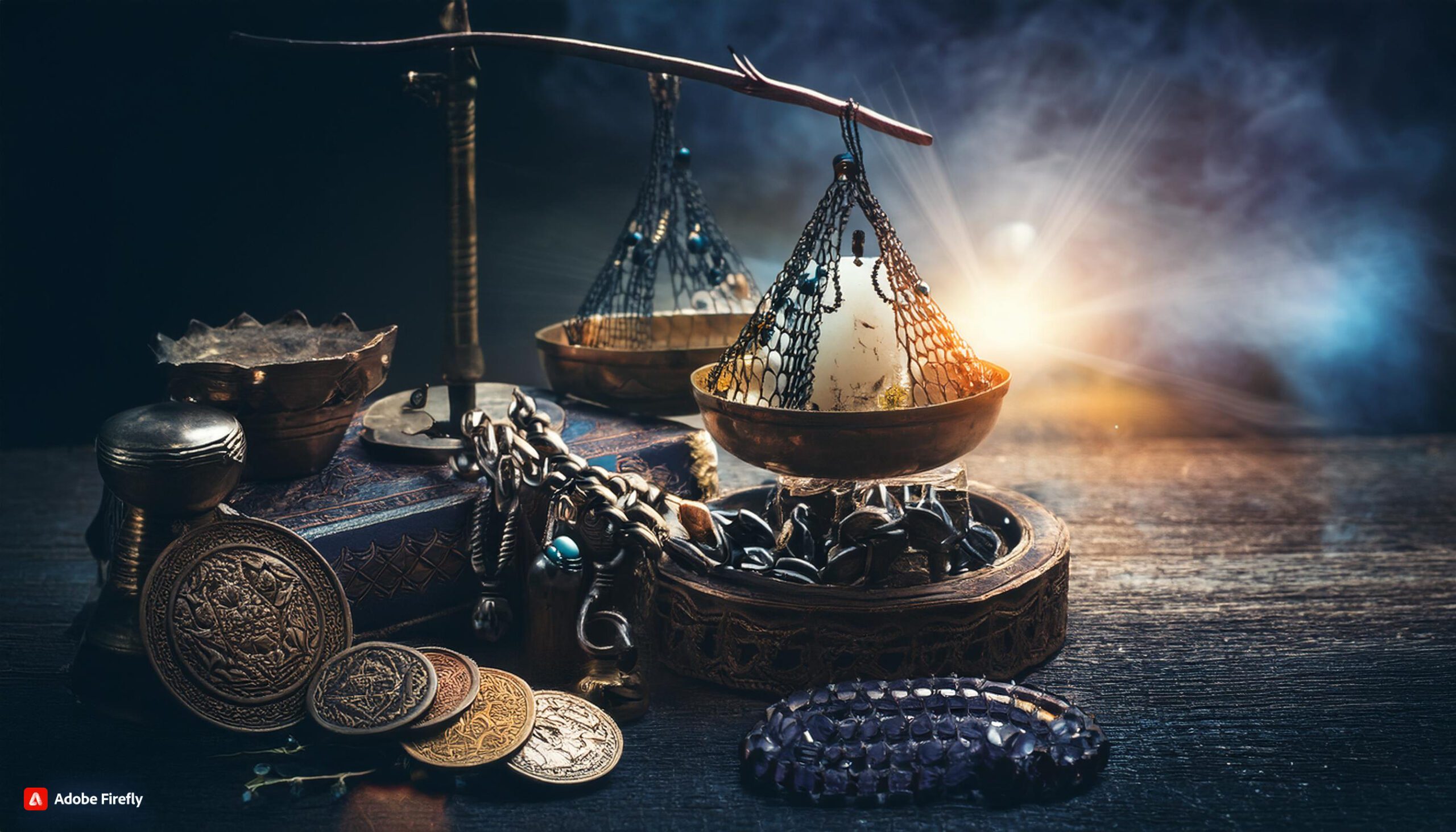12th House in Vedic Astrology: House of Moksha, Dreams, Hidden Karma & Spiritual Awakening (Part 1)

Introduction to the 12th House in Vedic Astrology
In Vedic Astrology, the 12th house governs the hidden and unseen dimensions of life, making it one of the most mysterious and spiritually significant houses in the horoscope. It is associated with moksha (liberation), spirituality, isolation, loss, detachment, dreams, and the subconscious mind. Astrologically, the 12th house represents the completion of karmic cycles, as it is the 8th from the 5th house and the 4th from the 9th house, signifying both the end of one phase and the inner storage of dharma. It also symbolizes ashrams, meditation, seclusion, foreign lands, and spiritual guidance, where the soul withdraws from the material world to gain higher awareness.
What Is the 12th House in Vedic Astrology?
In classical Vedic astrology, the 12th house is known as Vyaya Bhava , the house of expenditure, dissolution, and release. However, Vedic scriptures clarify that vyaya does not merely indicate material loss; rather, it signifies the exhaustion of karmic attachments, which ultimately prepares the soul for moksha (liberation).
According to traditional Jyotish texts, the 12th house governs loss, charity, sleep, foreign residence, renunciation, and liberation. These significations clearly establish that this house represents the final withdrawal from material engagement, not punishment. Loss indicated by the 12th house is therefore karmic in nature, it removes what has already fulfilled its purpose in the soul’s journey.
Vedic scriptures classify the 4th, 8th, and 12th houses as the Moksha Trikona, the triad of liberation. Among these, the 12th house represents the ultimate stage of detachment, where desires dissolve and the ego gradually releases its hold on worldly identity. While the 4th house offers inner peace and the 8th house brings transformation, the 12th house completes the process through total surrender and release.
Scriptural teachings also associate the 12th house with nidra (sleep) and swapna (dreams), explaining that when the physical senses withdraw, the subtle body becomes active. This is why the 12th house governs dreams, astral awareness, and subconscious experiences. It is during these states that unresolved karmic impressions surface, often through symbolic or unusual dreams that guide the native toward deeper understanding.
Ancient texts further describe the 12th house as the domain of sacred withdrawal. Forest hermitages, ashrams, monasteries, and places of solitude are all expressions of this bhava. In the Vedic tradition, withdrawal from worldly life, whether through vanaprastha or sannyasa, is not considered escapism, but a necessary spiritual evolution. The same principle applies astrologically: confinement shown by the 12th house may manifest as suffering when unconscious, or as liberation when embraced willingly.
From a karmic perspective, the 12th house is also seen as a repository of unresolved past-life impressions that are not consciously accessible to the native. Unlike the 8th house, which represents secrets known to the individual, the 12th house governs unknown karmas that reveal themselves only through experience, such as sudden losses, foreign displacement, deep solitude, or spiritual awakening.
For this reason, Vedic scriptures caution against fearing the 12th house. Fear arises from attachment, not from the house itself. What the 12th house removes is not essential, it is merely illusory identification. Saints, sages, and renunciates often exhibit strong 12th-house influences precisely because this house supports silence, detachment, compassion, and realization.
In essence, the scriptural view affirms that the 12th house is not the house of destruction, but the house of transcendence. It marks the point where material life dissolves so that higher consciousness may emerge.
Why Is the 12th House So Important in Vedic Astrology?
The 12th house holds special importance because of its structural and karmic placement within the horoscope. It is the 8th house from the 5th, indicating the continuation of the soul’s journey and the next cycle of birth, and the 4th house from the 9th, showing the inner storage of dharma, wisdom, and past-life merits. This makes the 12th house a key indicator of karmic completion, spiritual maturity, and inner transformation.
Symbolically, it represents Rishi ashrams, monasteries, caves, and places of retreat, where one withdraws from worldly life to engage in meditation, sadhana, and higher spiritual practices. For this reason, the 12th house is closely examined for deep spiritual disciplines, foreign travel for seclusion, and periods of voluntary isolation.
What Does the 12th House Represent Spiritually?
Spiritually, the 12th house signifies the dissolution of material attachments and the gradual inward movement of consciousness. It governs:
Moksha and liberation
Detachment and surrender
Solitude and introspection
Inner silence and meditation
This house does not merely indicate loss; rather, it shows what must be released so that higher awareness can emerge. When consciously understood, the 12th house becomes a gateway to spiritual insight rather than suffering.
How Is the 12th House Different from the 8th House?
A common question in astrology is the difference between the 8th house and the 12th house. While both deal with hidden matters, their nature is distinct.
The 8th house represents secrets, transformations, and experiences that are known only to the native but hidden from others. The 12th house, on the other hand, signifies realities that are not yet known even to the native. These include latent fears, karmic residues, symbolic dreams, astral or out-of-body experiences, and subtle spiritual guidance that unfolds only through time and experience.
What Role Does the 12th House Play in Dreams and the Subconscious Mind?
The 12th house is deeply connected with the subconscious mind, dreams, and altered states of awareness. It governs:
Symbolic and recurring dreams
Intuitive messages
Subtle guidance from higher realms
Unconscious emotional patterns
Traditionally, it is also associated with Pitri Lokas and the realms of Rishi Munis, from where ancestral or spiritual guidance may reach the native through dreams, signs, or inner realisations. These experiences are often deeply personal and can only be fully understood after they are lived.
Does the 12th House Always Indicate Loss?
One of the most common misconceptions is that the 12th house is only about loss. In reality, it represents completion and release. While the 5th house signifies creation and new beginnings, the 12th house brings closure, preparing the soul for renewal and transformation.
It governs letting go, withdrawal, secrecy, and self-reflection, processes that are essential for spiritual growth. Loss becomes suffering only when resisted; when accepted consciously, it becomes liberation.
Key Insight About the 12th House
Ancient scriptures describe the 12th house as a mystical realm where individuals confront inner fears, dissolve ego-driven patterns, and undergo deep psychological and spiritual transformation. Its close connection with the subconscious explains why it shapes emotional responses and mental conditioning at levels far below conscious awareness.

In Vedic astrology, the 12th house is considered to be one of the most mysterious and complex parts of the birth chart. This is because it contains a number of different aspects. Because it contains a wide range of life events, spanning from the tangible to the spiritual, it is frequently referred to as the “house of losses.” Due to the fact that this house is historically connected with topics such as seclusion, spirituality, travelling to other countries, and the subconscious mind, it is an important area of emphasis for gaining an awareness of one’s more profound life path.
When it comes to the natal horoscope, the 12th house is frequently a mysterious region that is filled with uncertainty and paradox as it “indicates suffering, loss, expense, waste, extravagance, sympathy, piety, divine knowledge and devotion, moksha (ultimate emancipation), and the state after death.”
When it comes to determining whether an individual experiences loss or gain during the twelfth bhava, the natal chart, navamsa, as well as current dashas and transits, are typically the most reliable indicators to decode how 12th house works in the horoscope. However, the attitude and consciousness of the person who is exploring the twelfth house will have a significant impact on the lessons that the soul acquires as a result of the experiences that it goes through. In Vedic scripture’s Free will, also known as choice, is what determines how we react and respond to the karmic lessons that life presents us with and it is hard to find those facts from the birth as we don’t know where is the free will and where is the Sanchit karma stored for us.
As we go more closer to the twelfth house, we are ready to make the assertion that “some pain is inevitable; suffering is optional, and something is not known to us reason being its divine nature and close connection with the spiritual sadhnas and we cannot see those things which are not visible to us. 8th house is know for what is known to us and only an individual native can know or explore about those facts, secrets and mysteries whereas 12th house is known for which is not known to us and we don’t know what it can bring to us in near future as it is deeply connected with the future and life after birth as either it can bring miseries to us or it can bring deep spiritual experiences in this life to those unseen facts of life which we cannot imagine or explore.
The twelfth bhava, which is also associated with prisons and jails, is not the only site where confinement can occur; ashrams, monasteries, and other places of spiritual rebirth can also be considered places of imprisonment as all are connected with bandhan ( bondages ) means one is stuck in a situation, totally away from the material world whereas imprisonment is a punishment and for the spiritual world it is a bliss for the sadhaka’s.
Same has been taught by the Swami Vivekananda, Paramahansa Yogananda,Yoga Vasishta and many other spiritual masters that “seclusion is the price of greatness.” Instead of teaching us about the negative effects of loneliness, the twelfth house can teach us about the positive aspects of being alone. Through this house, we are able to engage in spiritual practices such as yoga, meditation, and other forms of austerity. The caves, the islands, and the lonely areas.
Significance of 12th houses in Vedic astrology

Astrologically, 12th house is linked with the Pisces sign and the Planet jupiter but Saturn is also conventionally considered to be the karaka, or significator, of the twelfth house along with ketu which is seen for detachment and the moksha. Saturn being in the 12th house is seen for Pain or loss but ketu in the 12th house shows how we can detach from the world. The problems that can be found in the twelfth house are partially reflected in Ketu, which is also referred to as the “moksha karaka” graha. The planet Ketu is associated with enlightenment and release, yet it is also associated with loss and confusion. After Ketu has been positioned in the twelfth bhava, it is possible for it to express a profound spiritual knowledge.
The unconscious mind is also reflected in the twelfth house of the house constellation. It is possible for some psychological complexes that are associated with anxiety, worry, and paranoia to be brought to light when planets are transiting through the 12th house. The twelfth house is also capable of illuminating previously concealed family secrets or patterns of ancestry. A connection can also be made between the bed and the 12th house. Sleeping, dreaming, and even indulging in bed pleasures are all activities that are associated with the twelveth house. Beneficial planets in this area may be a reflection of the pleasures associated with the bedroom and the bedroom itself.
Whereas, Insomnia, nightmares, sexual dysfunction, or a lack of sexual delight are all symptoms that may be attributed to malefics planets placed in this house or 12th house lord is in afflicted state but malefic’s in 12th house is considered good for the spiritual bliss and it is also seen for the left eye and the feets being pisces having rulership of the 12th house sign. Because of this, ailments that affect the twelfth house or its ruler might lead to issues with the feet and/or poor vision. There is a connection between the 12th house and the dissolution of the material world as well as the discovery of the spiritual realm.
The 12th house represents the final stage of the journey of the soul, which is characterized by the letting go of attachments to the material world and the pursuit of a higher state of consciousness from the very beginning. Within the context of this house, periods of retreat, meditation, and introspection can be interpreted as intervals during which one may withdraw from the outside world in order to achieve inner calm and enlightenment.
In addition, the 12th house is responsible for governing experiences of confinement and isolation, which can take many forms, including but not limited to hospitals, jails, monasteries, or even voluntary seclusion that is chosen by the individual. Being forced to confront their inner selves and issues that have not been resolved, these experiences frequently result in tremendous personal transformations for the persons who go through them. A person’s actions and emotional responses are shaped by their subconscious mind, which is influenced by dreams, intuition, and hidden fears or desires. The 12th house is also associated with the subconscious mind.
The 12th house contains not only the spiritual and psychological components of a person’s life, but also the practical parts of life, such as opportunities to travel to other countries and establish links with distant nations. chances to live or work in a foreign country, which may bring about both problems and chances for growth, may be represented by this. Individuals are encouraged to extend their views and adopt new cultural and philosophical viewpoints as a result of the influence of the 12th house.
It is necessary to have a nuanced approach in order to comprehend the 12th house in Vedic astrology by virtue of the fact that it connects the material and spiritual sides of life. An individual can acquire significant insights into the underlying forces that create an individual’s destiny and life path by investigating the traditional meanings and connotations of the term that is being discussed.

When it comes to Vedic astrology, the 12th house is frequently linked to a variety of topics that have a significant influence on the lifestyle of an individual. Among these, seclusion stands out as a primary impact, the manifestation of which frequently takes the form of a desire or a requirement for solitude. Individuals who seek to withdraw from the outside world, whether through physical means such as isolating themselves or travelling to remote locations, or through mental and emotional withdrawal, are examples of this type of person.
The 12th house is also notable for its emphasis on the development of one’s spirituality. This house is commonly associated with the subconscious mind, which can lead to a profound journey of introspection that ultimately leads to spiritual enlightenment and self-awareness. Individuals who are impacted by the 12th house may discover that they are drawn to techniques such as yoga, meditation, or other activities that foster the growth of their spirituality and inner calm.
The 12th house is also associated with the idea of adversaries that are concealed from view. Internal conflicts, self-sabotaging habits, and subconscious anxieties are the types of adversaries that impede human advancement. These are not always physical adversaries, but rather internal conflicts. For the purpose of conquering challenges and achieving personal development, it is essential to identify and confront these hitherto unknown adversaries.
There is a fundamental connection between the 12th house and the concept of moksha, which implies emancipation. It is a sign of a higher state of consciousness and freedom from attachments to the material world, and it represents the ultimate deliverance from the cycle of birth and rebirth. The message of this subject is to urge people to go beyond their material ambitions and concentrate on achieving their spiritual goals.
There is also a huge impact on mental health and emotional well-being that the 12th house may have. It is possible for its influence to cause periods of introspection and reflection, which can sometimes result in feelings of loneliness or melancholy. On the other hand, these experiences can contribute to the development of resiliency and a more profound understanding of one’s inner self, which ultimately leads to the development of emotional maturity and stability. There is a great deal of significance associated with the 12th house in Vedic astrology, and it is frequently considered to be one of the most mysterious houses within the astrological chart.
According to the traditional interpretation, this house is connected to the realms of spirituality, the subconscious mind, hidden concerns, and finally, moksha, which is the term for liberation.
It is said to be the final frontier of the astrological houses, and it encompasses our experiences that are associated with being alone, being isolated, and the subconscious drives that are responsible for our behaviours.
According to Vedic astrology, the 12th house is not just associated with the concept of ends; it also represents the possibility of undergoing significant modifications. As a result, it places an emphasis on the significance of spiritual development and the pursuit of enlightenment.
In contrast to Western astrology, which largely sees the 12th house as a sign of escapism and secretiveness, Vedic astrology places particular emphasis on the function that the house plays in the pursuit of knowledge that extends beyond the realm of material life.
As individuals go along their spiritual paths, they may have the opportunity to encounter experiences that are transforming. This fundamental distinction highlights these experiences.
It is possible for certain planets to either intensify or reduce these themes depending on their placement inside the 12th house. As an illustration, the placement of spiritual planets in the 12th house might be indicative of a strong proclivity towards meditation, spiritual activities, or the search of higher consciousness.
On the other hand, problematic placements may be indicative of inner struggles or karmic lessons that need to be resolved. In addition, the links that exist between the 12th house and the other houses in the chart strengthen the interpretation by illuminating the dynamic relationship that exists between our spiritual desires and the experiences that we have in the world.
Understanding the 12th house ultimately provides individuals with essential insights into their spiritual path, assisting them in recognising the factors that steer their pursuit of freedom and self-awareness so that they can better comprehend themselves. Individuals are able to embrace their spiritual travels and dive deeper into their consciousness for the purpose of personal development when they are able to recognise the significance of this house.
Importance and Influence of the 12th House in Vedic Astrology

The 12th house in Vedic astrology serves as a vital space reflecting a myriad of themes that profoundly influence an individual’s psyche and spiritual journey. Often associated with isolation, the 12th house is regarded as a realm that encapsulates the subconscious mind and the deeper aspects of human experience. It is in this house where one can encounter the themes of solitude, as well as the transcendental nature of existence.
One of the predominant symbols of the 12th house is confinement, representing not only physical isolation but also emotional and psychological barriers. This aspect is significant as it elucidates how moments of solitude can lead to introspection and greater self-awareness. In navigating through the intricate layers of the subconscious, individuals may discover hidden emotions, repressed thoughts, and unresolved conflicts. The journey into these depths allows for healing and personal growth, often leading to transformative experiences.
Moreover, the 12th house is inherently linked to dreams and the mystical realm. It serves as a gateway to the astral plane, where dreams manifest and spiritual encounters occur. This connection suggests that dreams may carry profound messages that influence waking life, encouraging individuals to pay attention to their subconscious narratives. The symbols associated with this house, including mystical experiences and spiritual awakenings, can guide individuals on their journey toward enlightenment.
Additionally, the 12th house encompasses themes of liberation and letting go. By surrendering to the unknown and embracing the spiritual forces at play, individuals can experience profound transformation. The symbols of sacrifice and transcendence resonate here, indicating that the path through the 12th house is not merely one of isolation, but rather a gateway to the divine. Thus, understanding the symbolism of the 12th house can deeply enrich one’s spiritual journey, highlighting the importance of inner exploration and the quest for higher consciousness.
The 12th House, Moksha, Spirituality and Liberation

The 12th house in Vedic astrology holds a significant position in understanding the spiritual dimensions of an individual’s life. Often referred to as the house of liberation, it governs not only the realms of loss and isolation but also the profound experiences one can encounter on their spiritual journey. It is associated with spiritual enlightenment, mystical experiences, and various forms of retreat, serving as a gateway to higher consciousness.
An important aspect of the 12th house is its role in indicating one’s spiritual practices and pursuits. Here, the energies described by its planets and signs can illuminate paths towards both inner and outer exploration. For instance, a strong influence of beneficial planets in the 12th house can suggest a person who engages deeply in meditation, yoga, or other spiritual retreats. Conversely, challenging planetary conditions could denote struggles with maintaining spiritual focus or finding appropriate outlets for mystical experiences.
The 12th house also reflects an individual’s subconscious mind and inner fears, which can have a direct impact on spiritual growth. By addressing hidden fears and unresolved issues, one may achieve greater clarity and understanding in their spiritual endeavors. This alignment allows for a more comprehensive scrutiny of how one’s spiritual experiences are intertwined with personal challenges, as well as the potential for transcendence.
* Note : You can also read about Spirituality from the 8th house also, to know more click on the below link :
Mystery of the 8th House in vedic Astrology Part 1
Planets in the 12th House

The 12th house in Vedic astrology represents the subconscious mind, spirituality, and hidden aspects of oneself. The influence of various planets in this house can significantly impact an individual’s personal and spiritual growth. Each planet carries unique qualities that resonate with the energies associated with this mystical house.
Sun in the 12th house
For example, when the Sun is positioned in the 12th house, it often indicates a strong inclination towards spirituality and self-discovery. Individuals may find themselves drawn to creative pursuits that allow for introspection and self-expression. This positioning may favor solitary endeavors, often resulting in a profound internal journey that enhances one’s awareness of their innermost self.
Moon in the 12th house
The Moon’s placement in the 12th house can manifest as heightened intuition and empathy. Those with this configuration might perceive emotions more intensely, making them sensitive to the feelings of others. This intuitive capacity can be a powerful asset, guiding them towards aiding those in need, as they tap into their deep emotional reservoirs.
Mars in the 12th house
Similarly, Mars in the 12th house may manifest as a drive for spiritual advancement. This placement might lead to challenges in direct confrontations, encouraging individuals to channel their passionate energy towards introspection and healing. The transformative qualities of Mars can stimulate personal growth, urging individuals to confront hidden fears and insecurities.
Jupiter in the 12th house
Jupiter’s presence in the 12th house is often seen as beneficial, symbolizing expansion in the realm of spirituality. Those with this planetary alignment may experience a deepening of their philosophical understanding and are likely inclined towards charitable acts and helping those less fortunate. Their spiritual path can be paved by experiences that foster compassion and a sense of universal connection.
Saturn in the 12th house
On the other hand, Saturn in the 12th house can represent restrictions or obstacles in the spiritual journey. It urges individuals to confront their limitations and work through past karmas. This placement often indicates a need for discipline in spiritual practices, promoting growth through perseverance and self-reflection.
Mercury in the 12th house
In Vedic astrology, Mercury is known as Budh and is associated with communication, intelligence, and analytical abilities. When placed in the 12th house, Mercury’s significations take on new dimensions. The placement of Mercury in the 12th house is quite intriguing because it relates to spirituality, subconscious mind, and hidden aspects of life. Having Mercury in the 12th house can indicate a proclivity toward introspection and inner thought processes. Individuals with this placement may find themselves gravitating toward spiritual pursuits, exploring the depths of their psyche. Communication may not always be straightforward; instead, there can be an affinity for artistic expressions or metaphoric language. Embracing the subtlety in expression often becomes a hallmark.
This placement can also present challenges, particularly regarding clarity in communication. One may have a tendency to overthink or become lost in confusing thought patterns. However, the opportunities for personal growth are immense. Utilizing this mercurial energy encourages individuals to delve deeper into understanding themselves and others on a profound level. Emphasizing meditation or journaling can help clarify and harness the strengths inherent in this astrological configuration.
Venus in the 12th House
In Vedic astrology, Venus is known as the planet of love, beauty, and harmony. Its placement in the natal chart can significantly influence an individual’s experiences in relationships and social connections. When Venus resides in the 12th house, the interpretation becomes particularly intriguing and layered.
The 12th house is frequently associated with spiritual growth, hidden issues, and the subconscious mind. It represents isolation, introspection, and sometimes even self-sacrifice. With Venus positioned here, individuals may find a unique blend of romantic experiences interwoven with spiritual lessons. This placement encourages looking beyond the material aspects of love and finding deeper emotional and spiritual connections.
People in the 12th house with Venus may encounter love in unconventional ways. Often, relationships formed under this placement feel intense yet fleeting, or they may be characterized by secrecy. There is an inclination towards empathetic bonds, where compassion and understanding take precedence over material needs. This sometimes draws them to individuals who are more spiritually inclined or reflective.
Moreover, individuals may experience their love life in phases, as Venus encourages introspection and growth. Learning to balance self-love with the desire for privacy is essential, helping one navigate the complexities of love and partnership.
Rahu in the 12th House
In Vedic astrology, Rahu is considered a shadow planet, associated with illusion, obsession, and material desires. Its placement in a person’s birth chart can significantly influence their life path. When Rahu finds itself in the 12th house, it brings unique characteristics and challenges.
The 12th house is often associated with spirituality, seclusion, and the subconscious mind. With Rahu positioned here, it can create a push-pull dynamic. Individuals may experience strong impulses towards escapism or a desire to delve deep into spiritual practices. This placement may lead to conflicts between material desires and spiritual yearnings.
While Rahu in the 12th house can drive people to explore mystical realms and unconscious patterns, it may also present emotional or psychological struggles. Some may feel drawn towards unusual spiritual experiences, while others might face the challenge of self-delusion. It’s essential to embrace this placement wisely, as it can lead to profound growth and insights when approached with awareness.
Ultimately, understanding how Rahu in the 12th house affects you can provide valuable insights into your spiritual journey. Embracing the dual nature of this placement with an open heart can unlock hidden potential and foster a deeper connection to the universe.
Ketu in the 12th House
Ketu, a significant celestial body in Vedic astrology, symbolises spirituality, detachment, and liberation. When Ketu resides in the 12th house of an astrological chart, it brings unique influences that can guide individuals toward personal and spiritual growth. This house is often associated with the subconscious, dreams, and hidden realms, making it an intriguing placement for Ketu.
Having Ketu in the 12th house can result in a deep yearning for spiritual enlightenment. Individuals may find themselves drawn to mystical practices or contemplation, seeking an understanding of their spiritual identity. This placement encourages detachment from the material world, allowing for introspection and a connection to the deeper aspects of existence.
While Ketu in the 12th house can enhance spiritual awareness, it may also present challenges. Individuals might struggle with feelings of isolation or become easily distracted by their spiritual quest, leading to difficulties in practical matters. However, by addressing these challenges, Ketu’s transformative power can lead to profound insights and personal liberation, guiding one through a journey of self-discovery.
In conclusion, Ketu’s presence in the 12th house is a powerful indicator of an individual’s spiritual path. By embracing Ketu’s lessons, you can navigate the complexities of life while fostering a deeper connection to your spiritual self.
Overall, the planets in the 12th house offer rich insights into one’s spiritual landscape, guiding individuals toward personal transformation and greater self-awareness. Understanding these placements can illuminate pathways to inner healing and enhance one’s connection to the spiritual realm.
12th Lord in Different houses and Its Significance

In Vedic astrology, the 12th house is often associated with themes of isolation, release, and transcendence. It governs aspects of life such as spirituality, foreign travel, and hidden enemies. The ruling planet of this house is termed the 12th lord. The position and influence of the 12th lord in a birth chart can provide profound insights into an individual’s subconscious motives, karmic debts, and spiritual inclinations.
The significance of the 12th lord cannot be understated, as its placement in various houses can significantly alter the effects it brings into one’s life. For instance, if the 12th lord is positioned in the 1st house, it may indicate a person who is deeply introspective and possibly inclined towards solitude. Conversely, its placement in the 7th house might manifest as challenges in partnerships or marriage, often requiring the individual to seek balance between personal and relational aspects.
Understanding the 12th lord’s interactions with other planets is equally crucial. Its conjunctions, aspects, and house placements can amplify or mitigate its inherent qualities. For example, if the 12th lord is in conjunction with benefic planets like Jupiter or Venus, the typically challenging aspects of the 12th house might be softened, leading to a more positive expression of its energies. On the other hand, conjunctions with malefic planets such as Saturn or Mars might intensify feelings of isolation or hidden struggles.
The 12th lord’s role extends beyond personal introspection; it also touches upon one’s relationship with the unseen and the divine. It can reveal one’s potential for spiritual growth or the need for seclusion to achieve higher consciousness. By analyzing the 12th lord’s placement and aspects, astrologers can offer a more nuanced interpretation of an individual’s journey towards self-realization and spiritual fulfillment.
12th Lord in the 1st House
When the 12th lord is positioned in the 1st house, the interplay of energies significantly influences the individual’s personality, self-expression, and overall life direction. This particular placement often cultivates a tendency towards introversion. Individuals may find themselves more comfortable in solitude, reflecting on their inner world rather than engaging extensively in social activities. This inward focus can lead to profound self-awareness and a deep understanding of their own psyche.
There is also a strong inclination towards spirituality when the 12th lord occupies the 1st house. Individuals may be drawn to spiritual practices, meditation, and activities that promote inner peace and enlightenment. This alignment encourages a journey towards self-realization, often prompting the individual to seek a higher purpose or meaning in life beyond material pursuits. The spiritual quest can become a central theme in their life narrative, influencing decisions and actions.
However, this placement can also manifest in certain health issues. The 1st house represents the physical body, and with the 12th lord’s influence, there may be a predisposition to chronic ailments or conditions that are challenging to diagnose. It’s essential for individuals with this placement to pay close attention to their health, maintaining a balanced lifestyle to mitigate potential issues.
Moreover, the 12th lord in the 1st house can shape one’s identity and personal outlook in a unique manner. These individuals might develop a more contemplative and introspective approach to life. They often possess a distinct sense of individuality, marked by an understanding of the unseen or hidden aspects of existence. This can make them compassionate and empathetic, as they are attuned to the subtleties and complexities of human nature.
In summary, the placement of the 12th lord in the 1st house brings a blend of introversion, spiritual inclination, and potential health concerns, profoundly influencing the individual’s personality and life path. This unique combination encourages a journey of self-discovery and a quest for deeper meaning, shaping a distinctive and introspective personal outlook.
12th Lord in the 4th House
When the 12th lord is positioned in the 4th house, it significantly influences one’s home life and emotional foundation. The 4th house represents domestic comfort, maternal influence, and inner peace. The 12th lord’s placement here can bring about a sense of detachment or a longing for solitude within the home environment. This configuration may create a tendency towards isolation, leading individuals to seek solace in private spaces or perhaps even foreign lands.
Family dynamics may experience a degree of instability or unpredictability, often stemming from past karmic influences. This positioning can sometimes indicate a distant relationship with the mother or significant emotional experiences associated with the maternal figure. However, it also opens the door for spiritual growth and deeper emotional understanding, potentially transforming the home into a sanctuary for inner exploration and healing.
12th Lord in the 7th House
The placement of the 12th lord in the 7th house, which governs partnerships and marriage, brings a unique set of challenges and opportunities in relationships. The 12th lord here can indicate hidden elements within partnerships, such as secretive behaviors or unspoken emotional depths. It may lead to relationships that are karmically charged, requiring individuals to address unresolved issues from past lives.
This placement can also signify a spouse who is spiritually inclined or comes from a different cultural background. While it may bring some complexities, it also offers the potential for profound spiritual connections within partnerships. Individuals with this configuration often find that their personal growth is deeply intertwined with their relationships, pushing them towards greater self-awareness and mutual understanding.
12th Lord in the 10th House
When the 12th lord occupies the 10th house, the house of career and public life, it casts its influence on professional achievements and societal status. The 12th lord’s energy here can lead to careers that involve working behind the scenes, in isolated environments, or in foreign lands. There may be an inclination towards professions that involve spirituality, research, or humanitarian efforts.
This placement can sometimes indicate a sense of sacrifice or loss related to one’s career, where individuals may feel that their professional efforts are not fully recognized or rewarded. However, it also provides an opportunity to find fulfillment in serving a higher purpose, transcending materialistic ambitions. The integration of the 12th lord’s energy in the 10th house encourages a career path that aligns with one’s spiritual values and contributes to the greater good.
The 12th House, Karmic Lessons and Bondages

The 12th house in Vedic astrology is often associated with the subconscious mind, hidden matters, and spiritual growth. It holds significant importance in understanding past karma and the lessons that accompany it. This house acts as a symbolic repository of unresolved issues from previous lifetimes, influencing an individual’s current life experiences and challenges.
Positions of planets within the 12th house can reveal insights into unresolved karmic patterns. For instance, if a benefic planet occupies this house, it may indicate the opportunity for healing and overcoming past traumas. Conversely, a malefic planet’s presence may suggest that the person could face challenges related to those unresolved karmic debts. Each planetary placement serves as a mirror, reflecting lessons that must be addressed in this lifetime.
The 12th house also governs the themes of isolation, escape, and spirituality. Individuals who have prominent planets in this house may find themselves drawn to spiritual practices or psychological insights that help them cope with their karmic challenges. This inclination often fosters personal growth and allows those individuals to transcend previous limitations, paving the way for a more fulfilling existence.
Moreover, the 12th house is linked to the concept of surrender and acceptance, essential components in the resolution of karmic issues. By learning to release control and accept experiences, individuals may find healing pathways that honor their past while also forging a brighter future. It is through these lessons that one begins to understand the importance of another aspect of the 12th house: the quest for spiritual enlightenment.
Ultimately, delving into the 12th house through the lens of past karma provides valuable insights into one’s life journey. Recognizing and addressing these karmic lessons can lead to profound transformation and contribute to an individual’s spiritual evolution in this lifetime.
12th House, Marriage , Love and Relationships

The 12th house in Vedic astrology is often associated with profound themes that can significantly impact relationships. This house is known as the house of liberation, but it also governs the realm of hidden motives, subconscious influences, and the spiritual connections we share with others as well as deep secret romantic love relationships, hidden sexual affairs, deep physical intimacy and it has major role with our marriage and relationships as it signifies the image of the partner that is Up-pada Lagna and any planet placed in this house says lot more on our marriage partner.
Consequently, the 12th house plays a vital role in determining the karmic or spiritual nature of our relationships.
One of the most fascinating aspects of the 12th house is its representation of emotional bonds that transcend the ordinary. Relationships influenced by this house are often deeply connected to past-life experiences, suggesting a karmic link that brings individuals together. These connections can manifest as intense relationships that teach difficult lessons or provide profound spiritual growth. Because of this, the 12th house emphasizes the significance of recognizing the karmic patterns that may shape our interactions with others.
Moreover, this house also sheds light on hidden motives within relationships. Individuals may discover that certain feelings or abilities, such as empathy or intuition, are heightened when examining connections through the lens of the 12th house. Such insights can reveal the underlying drivers, unveiling a complex framework of desires and sacrifices made for others. Understanding these dynamics can lead to more transparent and meaningful connections, promoting a healthier relational environment.
In addition, the sacrifices associated with the 12th house can point toward relationships in which one may be required to surrender personal desires for the greater good. This theme often plays out in spiritual partnerships, where mutual support is paramount, and individual needs are weighed against the collective bond. Through this lens, the 12th house ultimately highlights the intricate web of relationships shaped by spiritual and karmic realities.
The 12th House, Love and Romance
When it comes to the way one experiences romantic love and relationships, the 12th house in Vedic astrology plays a significant influence in defining one’s experience. It has profound ramifications for feelings of longing, concealed attractions, and unfulfilled emotional needs, and it is frequently regarded as a house of hidden matters. These themes can be seen in a variety of different ways, depending on the positions of important planets like Venus and Mars in the universe.
Venus in the 12th house and love
When Venus is in the 12th house, for example, it may indicate that one has a tendency towards partners who are difficult to find or that one is involved in a love affair that is kept a secret. It is possible that this placement will result in feelings that are profound and passionate; nevertheless, it is common for these feelings to remain repressed, which can lead to a love that is either unfulfilled or distant.
Mars in the 12th house and love
When Mars is located in the 12th house, on the other hand, it may indicate that one takes a more subtle approach to love and in relationships. People who have this location may have difficulty directly expressing their wishes, and they frequently experience an inner conflict between their desire to be passionate and their need to be discreet.
Because of this, it is possible for feelings to accumulate without being expressed, which can result in situations in which love is more of a fiction than a reality. Furthermore, the 12th house is related with endings and isolation, which may result in patterns of falling in love with people who are either unable of being reached or who are involved in problematic circumstances.
These dynamics are further shown by examples taken from real life. Take, for example, a case study of a person whose Venus is located in the 12th house and who finds themselves consistently drawn to partners who are emotionally absent.
In their experiences, they were distinguished by a yearning for a more profound connection that appeared to be permanently out of reach. When Mars is located in the 12th house, on the other hand, a person may have difficulty expressing their emotions to their partner, which can result in misunderstandings and irritation.
Within the realm of romantic love, the 12th house exerts a varied influence that encompasses powerful emotional experiences as well as difficulties in creating partnerships that are satisfying. Individuals are able to handle their love lives with greater awareness and comprehension when they have a better understanding of these astrological intricacies.
Relationship Management, Love, Relationships and the 12th House

When it comes to Vedic astrology, the 12th house is said to be related with secret regions, introspection, and the subconscious mind respectively. Its influence extends beyond romantic entanglements and has a significant impact on friendships, familial relationships, and professional partnerships as well. Some of the most important factors that contribute to the formation of these interpersonal dynamics are the concepts of secrecy, sacrifice, and emotional healing that are abundant in the 12th house.
Friendship and the 12th House
The 12th house has the potential to bring about significant changes in the dynamics of friendships. It is possible that those who have significant placements in the 12th house would find themselves drawn to partnerships that are both profoundly transformational and problematic alike. On the other hand, these friendships may involve navigating the complexity that arise from secrecy or unsolved concerns, despite the fact that they have the potential to generate amazing emotional support.
Emotional Healings and the 12th House
It is common for individuals to experience emotional healing as a result of such associations, which enables them to confront their subconscious anxieties and weaknesses. Because of this, having a comprehensive understanding of this house can assist individuals in developing connections that are more resilient and supportive.
Additionally, the energy of the 12th house has an effect on the connections inside the family. This house inspires individuals to make sacrifices, which in turn prompts them to contemplate the dynamics of their families, where selflessness may be a crucial component. It is important that we do not make the mistake of ignoring the possible problems that can occur in family relationships.
Relationship Management and the 12th House
These problems may include issues of dependency, guilt, or emotions that are not addressed. Through the recognition of these patterns, individuals have the ability to commence healing processes and increase communication, which ultimately results in improved relationships with members of their family.
Intitution, Creativity and the 12th House
It is possible for the 12th house to bring about collaborations that are beneficial to one’s creativity and intuition in professional situations. Nevertheless, the presence of emotional conundrums or covert goals can make cooperation more difficult to accomplish. It is possible that acknowledging these elements will result in more harmonious relationships in the workplace.
It is possible for individuals to better use the energies that are represented by the 12th house by putting into practice astrology-based rituals. Some examples of such rituals are meditation that focusses on self-awareness and journaling to reflect on emotional responses. The cultivation of awareness and emotional intelligence can lead to the development of meaningful connections, which in turn leads to the flourishing of relationships.
Transformations, Marriage and the 12th house
In Vedic astrology, the 12th house exerts a substantial impact on the realm of marriage, which frequently takes the shape of both obstacles and chances for personal growth and development. It is believed that this house is connected to parts of life that are not readily apparent, such as the subconscious desires and unsaid wants that exist inside a partnership. Consequently, couples may experience emotional separation, which is characterized by partners having difficulty articulating their feelings.
This can result in misunderstandings and feelings of animosity between the spouses. There is a possibility that the energies of the 12th house may also encourage a propensity towards escapism, which is when individuals seek out distractions from the outside world or indulge in imagination rather than tackling the problems that are occurring within the marriage.
Additionally, the covert dynamics that are governed by the 12th house have the potential to add concealed variables that may restrict the flow of the union. Unacknowledged previous traumas or unresolved difficulties that have an impact on the way partners react to one another are examples of these kind of things. It is essential to have an understanding of these factors in order to cultivate a deeper emotional relationship.
By encouraging couples to dig into their inner worlds, address their vulnerabilities, and pursue spiritual growth together, the 12th house helps couples to develop their relationship. It is common for couples who participate in this process to discover that admitting their concerns and wants can result in a deeper knowledge of one other.
It is necessary to have efficient communication in order to successfully handle the problems that the 12th house presents. It is important for couples to make an effort to have an open conversation about their underlying concerns, desires, and emotional requirements.
In addition, the incorporation of spiritual activities such as meditation, yoga, or shared mindfulness exercises can help to improve one’s self-awareness and create a better connection.
These activities have the potential to assist couples in recognising patterns that are influenced by the 12th house, which consequently enables them to get beyond the superficial layers of their relationship. Partners have the ability to develop a marriage connection that is not only resilient in the face of adversities but also may be strengthened by mutual growth and understanding if they actively embrace the transforming forces of the 12th house.
The Mystery, Vedic Astrology Scriptures and the 12th House

The 12th house in Vedic astrology holds a special significance, often referred to as the house of liberation, spirituality, and the subconscious. Ancient Vedic texts, such as the Brihat Parashara Hora Shastra, provide profound insights into this enigmatic house. It is traditionally associated with loss, expenditure, and the dissolution of boundaries, both materially and spiritually. The interpretations present in these texts offer a window into the psychological and metaphysical implications of the 12th house.
Historically, sages and astrologers have noted that the 12th house governs not only one’s hidden enemies but also their spiritual liberations and aspirations. According to the astrological treatise, this house influences one’s relationship with the subconscious mind, revealing the potential for deep introspection and personal transformation. The ancient scriptures also indicate that this house is emblematic of moksha, or liberation from the cycle of birth and death, highlighting its spiritual depth.
One of the noteworthy quotations from the classics posits, “The 12th house is the reservoir of karmic imprints; it indicates how well one can transcend their past and embrace the future.” This perspective illustrates the idea that past actions and experiences deeply influence an individual’s capacity for spiritual growth and enlightenment.
Moreover, predictions made in ancient texts concerning the 12th house suggest that placements of planets in this house can lead to a variety of outcomes. Depending on the planetary influences, it can reveal characteristics such as philanthropy, mystical pursuits, and even challenges related to isolation or confinement. Thus, the 12th house serves as a critical element in evaluating life’s hidden dimensions, offering a deeper understanding of one’s inner world.
In sum, the analysis of the ancient scriptures sheds light on how the 12th house serves as an essential focal point in Vedic astrology, intertwining life’s earthly experiences with the profound quest for spiritual enlightenment.
Common Misconceptions and the 12th House
The 12th house in Vedic astrology is often shrouded in misunderstandings, leading to several misconceptions that can distort its true significance. One prevalent myth is that the 12th house solely pertains to loss and suffering. While it is indeed associated with isolation, confinement, and the subconscious realms, it also encompasses spiritual growth, liberation, and the limitation of ego. Understanding this multifaceted nature is essential to getting a comprehensive view of what the 12th house represents.
Another common belief is that the 12th house’s influence is inherently negative. This misconception fails to recognize that the 12th house can be a source of immense spiritual wisdom and insight. It governs dreams, intuition, and subconscious processes, which are vital for one’s personal and spiritual evolution. In fact, many astrological texts emphasize how planets situated in the 12th house can offer profound insights that lead to inner strength and understanding when properly harnessed.
Critics also argue that the 12th house’s link to foreign lands and travels may suggest that its influence is only about physical displacement. However, this perspective neglects the broader implications of exploration—the 12th house encourages seeking broader horizons and understanding. It invites individuals to explore philosophies, cultures, and spiritual practices beyond their usual experiences, thus enriching their lives in meaningful ways.
Moreover, some may perceive the 12th house as merely a location of confinement, neglecting its role in healing and refuge. It serves as a sanctuary for those seeking solace, offering a space for meditation and retreat. This house, instead of being solely tied to fears and anxieties, can be viewed as a gateway to connection with the divine and the higher self. By dispelling these misconceptions, one can fully appreciate the profound wisdom encapsulated in the 12th house of Vedic astrology.
12th House, Spirituality and Enlightenment

The 12th house in Vedic Astrology is often regarded as the house of spirituality and enlightenment. It is associated with the subconscious mind, dreams, and the unseen realms, serving as a portal to higher consciousness and spiritual awakening. The placement of planets in the 12th house can profoundly influence an individual’s spiritual journey. When benefic planets like Jupiter or Venus occupy this house, they often enhance one’s inclination towards spiritual pursuits, meditation, and a deeper connection with the divine.
On the contrary, malefic planets like Saturn or Mars in the 12th house might bring challenges that push an individual towards introspection and spiritual growth. These challenges, though seemingly difficult, are often necessary for the soul’s evolution and ultimate enlightenment. The 12th house also governs solitude and isolation, which are crucial for meditative practices, allowing individuals to disconnect from the material world and focus on their inner self.
A significant concept related to the 12th house is Moksha, or liberation from the cycle of birth and death. The 12th house plays a pivotal role in achieving Moksha, as it represents the dissolution of the ego and the merging of the individual self with the universal consciousness. This house encourages letting go of worldly attachments and embracing the spiritual path, leading to ultimate freedom and enlightenment.
Moreover, the 12th house is linked to past life karma and the subconscious mind. The karmic debts and lessons carried over from previous lifetimes are often reflected in this house. Understanding the position and influence of the 12th lord, the ruler of the 12th house, can provide insights into one’s spiritual inclinations and the karmic lessons necessary for spiritual advancement.
In essence, the 12th house is the gateway to spiritual liberation, guiding individuals towards enlightenment through introspection, meditation, and a deep connection with the divine. Whether through solitude, challenges, or spiritual practices, the 12th house facilitates the journey towards Moksha and the realization of one’s true self.
12th House on Foreign Travels and Expenses

The 12th house in Vedic astrology holds significant sway over foreign travels and expenditures. It is often seen as a gateway to experiences and realms beyond the native’s immediate environment. This house governs the inclination and opportunities for traveling abroad, living in foreign lands, and the resultant financial implications.
When the 12th house is strong and well-aspected, it can indicate a natural propensity for exploring distant places. Individuals with favorable planetary placements in the 12th house may find themselves frequently traveling internationally, either for professional reasons, educational pursuits, or personal exploration. Such placements can also signify a life spent in foreign countries, offering rich experiences and diverse cultural exposures. The 12th house’s influence often brings about a broader worldview and an appreciation for different ways of life.
Financially, the 12th house is closely tied to expenditures. It represents not just financial outflows but also the nature of these expenditures. For instance, large sums may be spent on travel, international business ventures, or settling in another country. While these expenditures can sometimes lead to significant financial strain, they can also open up avenues for growth and expansion. A well-placed 12th lord can suggest that money spent on such endeavors will eventually bring returns in the form of enriched experiences, professional growth, or even monetary gains.
However, the 12th house is also associated with challenges. Adverse aspects or a weak 12th house can indicate difficulties related to foreign travels and finances. This can manifest as unexpected expenses, legal troubles abroad, or cultural adjustment issues. Individuals may face obstacles in securing visas, encountering bureaucratic hurdles, or dealing with financial instability while abroad. It is crucial to approach these challenges with a well-thought-out plan and a resilient mindset.
Overall, the 12th house’s impact on foreign travels and expenditures is multifaceted. While it opens doors to new worlds and experiences, it also necessitates careful financial planning and preparedness to navigate potential hurdles. The 12th house encourages individuals to balance their yearning for exploration with practical considerations, ensuring that their ventures into the unknown are both fulfilling and sustainable.
Remedies for the 12th House
There are various Vedic remedies that can assist in mitigating the negative aspects associated with the 12th house. Wearing gemstones like amethyst or moonstone can enhance positive energy. Additionally, practicing meditation , Yoga , Sadhna and engaging in selfless service (seva) can channel the deeper spiritual truths hidden within this house.
Moreover, chanting specific mantras related to the planets placed in the 12th house can significantly aid in spiritual growth and emotional healing. Regular rituals and offerings to deities, such as Lord Vishnu, can also bring peace and prosperity.
By applying these Vedic remedies mindfully, you can not only navigate the challenges of the 12th house but also unlock hidden potentials, ultimately leading to a fulfilling and balanced life.
Conclusion: Embracing the Lessons of the 12th House
In conclusion, the exploration of the 12th house in Vedic astrology reveals profound insights into the spiritual realm and the subconscious aspects of human existence. Often associated with themes such as liberation, losses, and spirituality, this house invites individuals to delve into their inner selves, allowing for significant personal growth. It serves as a reminder of the importance of self-awareness in navigating life’s complexities, particularly concerning hidden fears, unresolved past experiences, and spiritual aspirations.
The significance of the 12th house cannot be understated; it acts as a guiding force in revealing deeper truths about our motivations and the patterns that govern our lives. By embracing the lessons embedded within this astrological framework, individuals can cultivate a more holistic understanding of their purpose and existential journey. Whether through contemplation, meditation, or introspection, the 12th house encourages an ongoing process of self-discovery and healing. These practices can help individuals confront and embrace their vulnerabilities, ultimately promoting a sense of wholeness.
Furthermore, recognizing the 12th house’s influence on spiritual beliefs can enrich one’s understanding of the universe and humanity’s interconnectedness. As individuals learn to let go of material attachments and embrace a more humanitarian perspective, they often find themselves on a path toward enlightenment and fulfillment. This transformative journey, initiated by understanding the dimensions of the 12th house, emphasizes the significance of surrendering to life’s experiences while maintaining a sense of resilience.
In essence, the teachings of the 12th house in Vedic astrology offer invaluable wisdom for personal and spiritual advancement. By integrating these insights into everyday life, individuals can embark on a meaningful journey towards self-awareness and holistic growth.
I hope this will help you to understand deeper mystery of the 12th house , so stay connected for the part – 2 and keep sharing this article.
With Thanks and Regards,
Rocky Jamwal
Views: 1437

